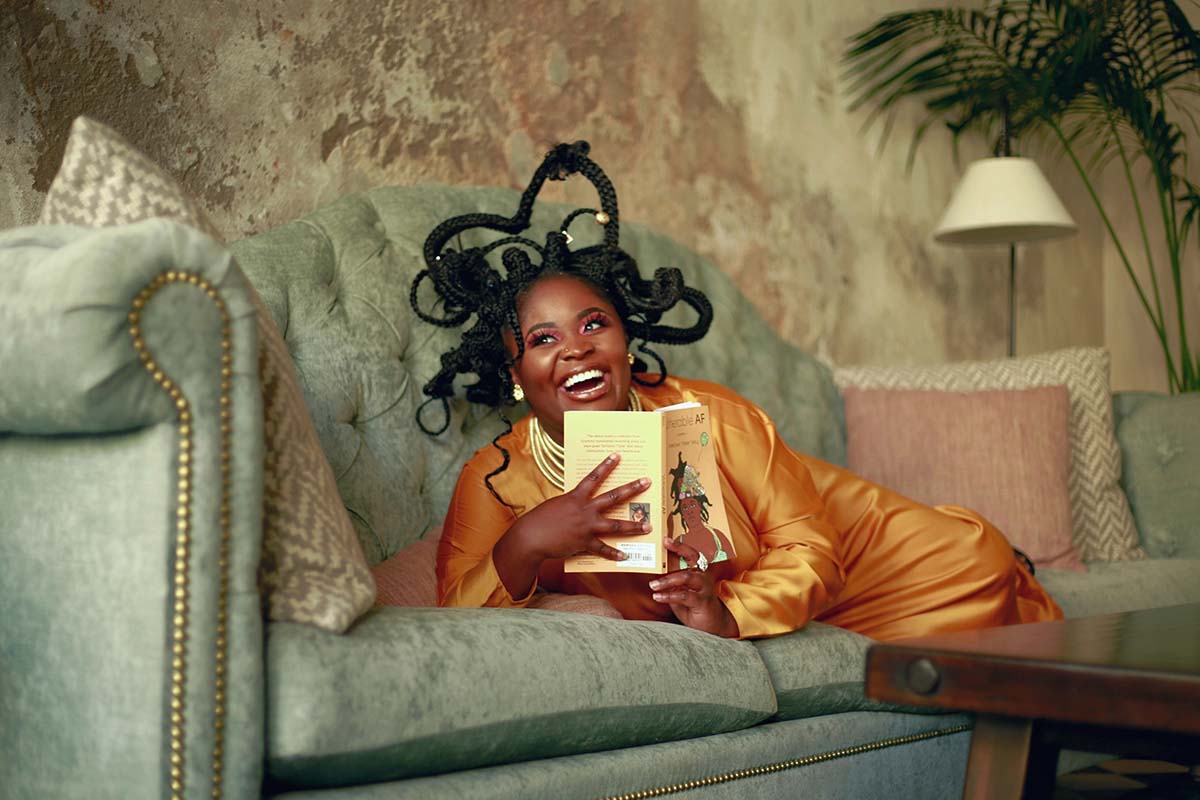4 Blues Poets to Speak to Your Soul
Photo: Taja Janel — Tank Ball poses with ‘Vulnerable AF’
As a comforting and emotional genre, poetry often connects deepest with readers in the midst of turmoil. This is one of the key ideas behind blues poetry, a movement and tradition rooted in African American oral storytelling. As its name might suggest, blues poetry has ties to music: Its lyricism comes alive when poets read their work aloud. In addition to its sonic qualities, blues poetry is defined by its depiction of struggle and underlying hope. Across the rich tradition of blues, nearly every poem acknowledges despair—but also provides soulful encouragement and a visionary tone that looks toward the future.
1. Tank Ball
Tarriona “Tank” Ball started her career as a blues musician, becoming the frontwoman of the genre-bending band Tank and the Bangas. Ball continues to shine on stage—in fact, she’ll be performing with her band in the upcoming Roots N Blues Festival—a passion also fuels her poetry. Music critics and fans alike have praised Tank and the Bangas for their unique and emotive music, which combines boisterous, dance-friendly sound with introspective and often darkly honest lyrics. Her debut poetry collection, Vulnerable AF, achieves a similar feat, blending heartbreak and fresh humor.
2. Kevin Young
Kevin Young has been central in carrying blues poetry into modern-day literature. In addition to recently serving as editor for the 2020 anthology African American Poetry: 250 Years of Struggle & Song, Young has published more than a dozen collections. Many of his titles and themes give a nod to music—for instance, The Grey Album and To Repel Ghosts: The Remix. Overall, Young regularly incorporates themes central to the blues into his poems, including heartbreak, family, and the fight for racial justice.
3. Langston Hughes
A pioneering voice in the Harlem Renaissance, Langston Hughes has now rightly become a vital and vibrant figure in the American poetry canon. His first collection, appropriately titled The Weary Blues, is an ode to Black life and an intimate portrait of its multifaceted experiences. In the book’s titular poem, Hughes illuminates the nightly ritual of a musician: “With his ebony hands on each ivory key / He made that poor piano moan with melody. / O Blues! / Swaying to and fro on his rickety stool / He played that sad raggy tune like a musical fool. / Sweet Blues! / Coming from a black man’s soul. / O Blues!” The juxtaposition of a “sad raggy tune” with the rapturous, euphoric “Sweet Blues!” speaks to the genre’s capacity to reflect both highs and lows.
4. James Weldon Johnson
James Weldon Johnson’s life is a testament to how poetry relates to activism. While building a career as one of the first widely published Black poets, Johnson also served as one of the leaders of the National Association for the Advancement of Colored People (NAACP). Johnson is perhaps best known for writing “Lift Every Voice and Sing,” a hopeful and heartfelt song that went on to become the Black National Anthem. Like other blues poetry, this foundational text holds both heartache and promise, each emotion strengthening the next: “Stony the road we trod / Bitter the chastening rod, / Felt in the days when hope unborn had died; / Yet with a steady beat, / Have not our weary feet / Come to the place for which our fathers sighed? / . . . Till now we stand at last / Where the white gleam of our bright star is cast.”
Poetry intersects with a wide variety of musical genres. If you’re looking for more poetry with an emphasis on sound and rhythm, learn about poetry’s connection with hip hop.




